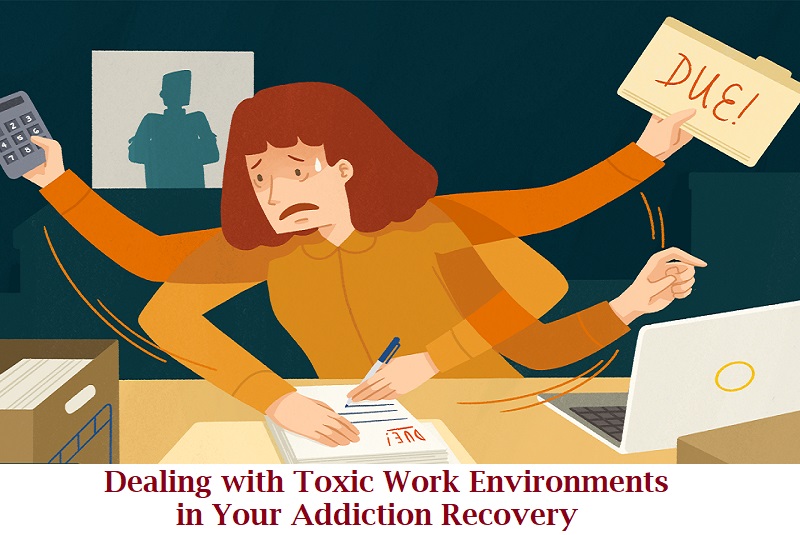“Toxic work environment” is one of those expressions that has become far more widely used in recent years, as the English language develops and adjusts to what people are actually saying and using. Just like the words and phrases “selfie,” “LOL” and “denialism,” the phrase toxic work environment has become popular because there’s simply a lot more of it about.
Don’t get me wrong – I’m not talking about dirty, old offices here, though they are a problem in themselves. This is the point – work environments have never been viewed as some kind of “employment paradise” where every worker gets treated the same, everyone’s ultra-friendly to one other, and the CEO makes everyone coffee in the morning. With biscuits.
In fact, many of these new toxic work environments are down to simply raising and increasing awareness about personal employee rights, an increased focus on staff wellbeing, and so on. Much of this awareness can be put squarely at the door of “research,” and quite rightly so.
Modern studies have clearly shown that toxic work environments are not only detrimental to those working in them – they are detrimental to productivity, profits, company revenue, and smiling shareholders.

When confronted with such an environment, disgruntled staff can pursue their employment rights. As is their right, of course. Anyone could, and everyone should.
However, for the same reason (because of their particular toxic workplace), if the person being impacted upon is in addiction recovery, there’s now a lot more at stake than the occasional smile.
According to a recent study, published in the Journal of Occupational Health Psychology, there is a direct link between toxicity in the workplace and symptoms of insomnia, a common symptom of clinical depression. For the substance addict who is now in recovery, it could well be the trigger to a relapse.
(For all the managers out there:) Unless, of course, those who provide the workspace follow the standard advice for solving toxic work environments, and put the following in place immediately:

However, that’s not going to happen before those in addiction recovery (and that could well be you) get to work in the morning, so here’s your advice – “Dealing with Toxic Work Environments in Your Addiction Recovery.” Seriously, if a toxic workplace is becoming a possible threat to your recovery addiction, you need to protect that recovery – now.
After over 6 years of sobriety myself, I know how close a relapse can be, and what you need to do to ensure it doesn’t happen. After leaving my own rehab in Philadelphia, my first job (and its awful workplace environment) was an imminent threat to my young recovery. I sought advice, and that is what is written below. However, after a long discussion with my counselor (see no. 3), I chose to leave. I found a far better job not long after.
1. Your Workplace Boundaries
In order to keep your sanity, regardless of whether your workplace is toxic or not, it is always advisable to set a few workplace boundaries – and then stick to them. However, if the environment you work in is a toxic one, these become pretty much an essential part of your daily routine.
Apart from helping you rise above the toxicity, they send an ultra-clear message to those who enjoy their backstabbing, endless gossip, and downright lies – you will not accept their toxicity, you will not be taken for granted, and you’ll definitely not be walked over. For example, if someone is badmouthing you to others, change the subject or find a way to finish the conversation – quickly.
2. Chill After Work
Being in addiction recovery will have furnished you with strategies and coping skills if you’re feeling stressed. After work, take some time each day to chill as part of your continuous self-care. Meditate, exercise, practice a hobby, write in your daily journal – it’s up to you, as long as it gives you a productive and calming outlet for any stress that has built up during the day.
Additionally, try “chilling” while you’re actually at work. We don’t mean just kick back, put your feet up, and have a nap here. Just try to mentally detach yourself from what is going on around you. The more detached you are, the less stressed you will become.
3. Remember Your Support Network & Discuss Your Problems
In recovery, there is one thing you should never forget, never lose sight of, and never take for granted – your support network. If workplace toxicity is getting to you, get in touch with a member of your trusted network – a family member, a close friend, your sponsor, or your therapist or counselor.
Once you’ve got in touch with them, discuss exactly how you’re feeling, why you feel stressed, and listen to their advice. It comes from a good place. Everything takes on a whole new perspective if you share what’s troubling you with someone who cares about you.
4. Always Have Your Exit Strategy
By identifying and addressing the poor elements in the workplace, hopefully, things will improve. However, if this toxicity at work continues regardless, and it might, and especially if it is becoming a real issue for you and your recovery – always have your exit strategy.
Changes and improvements to a toxic workplace come from the top, and they take time to work too. If you have spoken about your concerns to the management, and there is no improvement, it’s time to start looking for a job where people will fully appreciate your contributions, and make you feel valued.
If that sounds a little drastic, just consider how “drastic” the situation will become if you should suddenly relapse, and return to your addictive ways of the past. Now, which is the worst scenario out of these two? Exactly. Your recovery comes first. Always. Then, and only then, will everything else follow.











